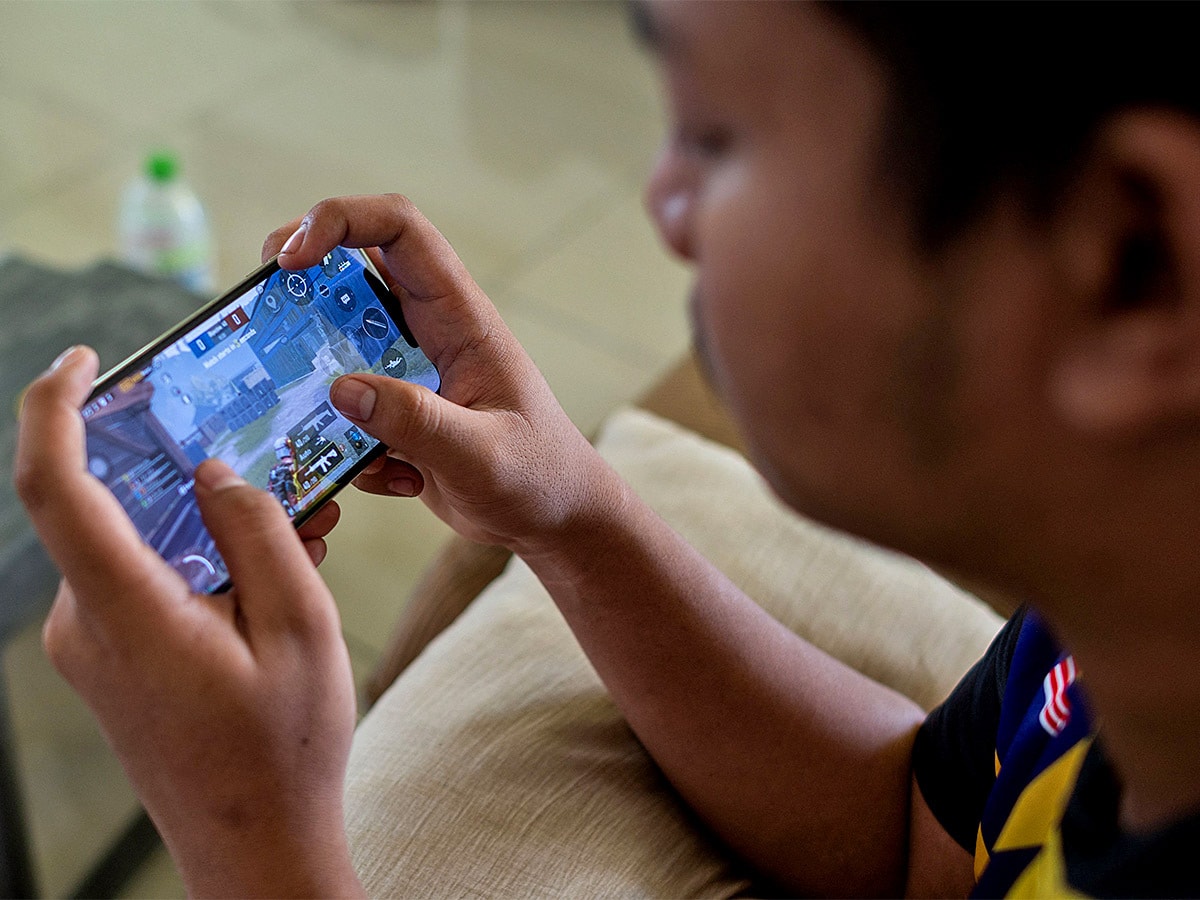Data from Data.ai show that global spend on mobile games fell 5% during 2022. However, despite reduced guidance from Take-Two and a bid to block Microsoft’s takeover of Activision, there are encouraging signs for game developers including Tencent as China government policy softens and market report forecasts 15.8% CAGR.
- Global mobile gaming spend shrunk 5% in 2022.
- China’s tech crackdown is seemingly over as the government issues new game licenses.
- All three companies are in the top ten holdings of the VanEck Video Gaming and eSports ETF.
Rising inflation is taking its toll on gaming stocks like Tencent [0700.HK], Take-Two [TTWO] and Activision Blizzard [ATVI], following a 5% fall in global spending on mobile games in 2022.
Tencent’s share price has fallen 13.1% in the last 12 months, while Activision’s fell 8.9% over the same period.
Take-Two’s share price fell 32.1%, with an earnings miss and guidance cut on 7 November prompting the stock to fall 13.7% on the following day.
Data.ai, formerly App Annie, published its annual State of Mobile report on 11 January. The report revealed that, in addition to global mobile gaming spend falling 5% year-over-year to $110bn, consumer spend across app stores fell 2% to $167bn, with mobile game providers bearing the brunt of this.
However, first-time installations of mobile apps reached 90 billion for the first time, an 8% increase on the year before.
Reason to rally despite lacklustre earnings
In its second quarter 2023 earnings report, released in November, Take-Two highlighted “shifts in [its] pipeline, fluctuations in FX rates, and a more cautious view of the current macroeconomic backdrop”. In the accompanying earnings call, chairman and CEO Strauss Zelnick said that in-app purchases were “under some pressure due to current macroeconomic conditions”. Combined, these headwinds led Take-Two to lower its net bookings guidance for FY 2023, from between $5.8bn and $5.9bn to between $5.4bn and $5.5bn.
On Wednesday, news broke that Microsoft [MSFT] is looking to acquire Activision Blizzard for $95.00 per share. However, rivals including Google [GOOGL] and Nvidia [NVDA] have petitioned the FTC to block the deal. The European Commission is also preparing an antitrust charge sheet, expressing its concerns regarding the acquisition.
Tencent, meanwhile, has received a boost following the easing of lockdown restrictions in China; its share price has nearly doubled from its October low.
Regulatory support
By the end of last year, there were also signs that Beijing’s crackdown on tech stocks was easing, with Tencent receiving licences for its latest batch of game titles late in December.
NetEase [9999.HK] also received approval for new titles, in a move which benefitted a string of China-based gaming and video stocks, among them Bilibili [BILI].
Then, on January 9, Guo Shuqing, chairman of China’s Banking and Insurance Regulatory Commission, told state-run news agency Xinhua that the country’s crackdown on tech companies including Tencent is all but over.
China will “encourage [tech companies] to come out strong in leading economic growth, creating more jobs, and competing globally,” Guo added. Tencent’s share price gained 3.6% when Guo’s comments were reported.
This provides optimism that the global mobile gaming industry will continue to grow beyond its current rough patch. On 4 January, a report from Research And Markets forecast a 15.8% compound annual growth rate from 2022 to 2026, with the industry reaching $209.1bn during that time.
However, the gaming industry more generally received a warning shot on January 12 when Ubisoft [UBI.PA] released a trading update revising its net bookings guidance downwards and cancelling three titles. Tencent is Ubisoft’s largest holder, and is among the companies that could stand to benefit from taking over the French developer.
Funds in focus: VanEck Video Gaming and eSports UCITS ETF
For exposure to Tencent, Activision Blizzard and Take-Two, as well as the broader theme, investors can select the VanEck Video Gaming and eSports UCITS ETF [ESPO]. As of 17 January, all three companies are in the fund’s top 10 holdings, with Tencent at number one, with an 8.86% weighting. Activision comes fifth with 5.99% of assets under management (AUM), while Take-Two is number 10 at 4.44% of AUM. The fund also holds Nvidia, Netease [9999.HK], Nintendo [7974.T] and Electronic Arts [EA] in its top 10 holdings.
ESPO has fallen 24.3% in the last year, though it is up 9.7% so far in 2023.
Analysts polled by Refinitiv yield a median 12-month price target of 399.62 renminbi (¥) for Tencent, 5.2% above its recent closing price. The equivalent figure for Activision is $95.00, representing anticipated gains of 27.4%, while the $131.00 median target for Take-Two is 25.3% above its latest close.
Disclaimer Past performance is not a reliable indicator of future results.
CMC Markets is an execution-only service provider. The material (whether or not it states any opinions) is for general information purposes only, and does not take into account your personal circumstances or objectives. Nothing in this material is (or should be considered to be) financial, investment or other advice on which reliance should be placed. No opinion given in the material constitutes a recommendation by CMC Markets or the author that any particular investment, security, transaction or investment strategy is suitable for any specific person.
The material has not been prepared in accordance with legal requirements designed to promote the independence of investment research. Although we are not specifically prevented from dealing before providing this material, we do not seek to take advantage of the material prior to its dissemination.
CMC Markets does not endorse or offer opinion on the trading strategies used by the author. Their trading strategies do not guarantee any return and CMC Markets shall not be held responsible for any loss that you may incur, either directly or indirectly, arising from any investment based on any information contained herein.
*Tax treatment depends on individual circumstances and can change or may differ in a jurisdiction other than the UK.
Continue reading for FREE
- Includes free newsletter updates, unsubscribe anytime. Privacy policy





